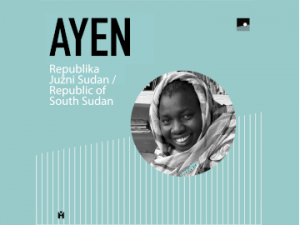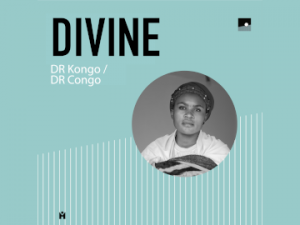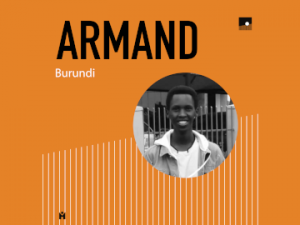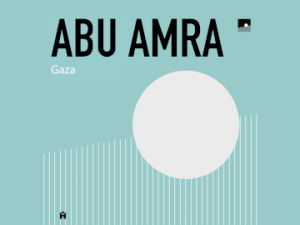Living Peace 8: Letters of Wars and Peace
16. 2. 2025 | Politics
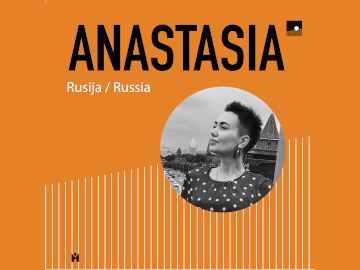
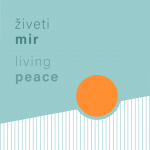 At the end of 2022, we at the Peace Institute, started organizing a series of public events entitled Thinking Peace as a response to the multitude of armed conflicts around the world. Since the world has been spiralling into dangerous global militarization, we wanted to rethink what is war, what is peace, and more importantly how to ensure a stable peace which would not be quickly engulfed in new conflicts and wars.
At the end of 2022, we at the Peace Institute, started organizing a series of public events entitled Thinking Peace as a response to the multitude of armed conflicts around the world. Since the world has been spiralling into dangerous global militarization, we wanted to rethink what is war, what is peace, and more importantly how to ensure a stable peace which would not be quickly engulfed in new conflicts and wars.
We want to expand on the Thinking Peace cycle and add new dimensions to imagining peace. With the help of amazing individuals worldwide, we are beginning a new series of public letters written by people whose lives were interrupted by war or who found themselves in a recent armed conflict. We have titled this series of letters as Living Peace to emphasize how important peace is and that people often only realize this importance when facing the brutality of war. We want to illustrate how people from Palestine, Ukraine, Rwanda, Bosnia and Herzegovina, Croatia, Serbia, Syria, Sudan, Afghanistan, Congo, Yemen and elsewhere think publicly about peace. How do the inhabitants of these regions face wars and military conflicts? What lessons can we learn from their intimate experiences and existential fears?
While opinions of world leaders who justify or even defend wars, dominate today’s media spheres, we want to amplify the voices that defend peace, reject violence and recognize equal rights for all. Having experienced war, they understand why it is essential to live in peace.
The 8th letter we are publishing was written by Anastasia from Russia:
What do Russians who are against the war, including myself, want? We want an end to the war and a fair trial for those who are leading Russia. We want freedom for political prisoners. The main thought: Russians who have fled the war are not terrorists. This stigma is very painful for me. I am not just a migrant, but also a professional, lecturer, and scientist. In Slovenia, besides studying, I have been working on my integration into society and volunteering. I am actively learning the language and trying to start my life anew. However, I am not equal on the labour market.
How to help those who have left everything and fled from their known life?
We need support, not obstacles from EU politics for those of us who have left everything and fled. We need trust, we need the opportunity to work. Believe me, a huge number of educated, intelligent, and respectable people, experts in various fields, have left Russia. We can and want to contribute and share our knowledge and skills with Slovenia. I believe that many Russians who have fled to other countries due to the war will support me.
LETTER BY ANASTASIA FROM RUSSIA
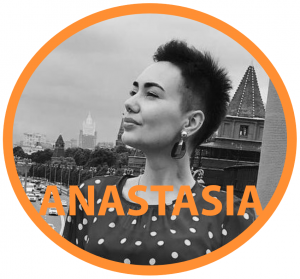 Two homes: on war and hope
Two homes: on war and hope
I am Anastasia from Russia, and after the start of the war in 2022, I decided to leave my homeland and move to Slovenia. Yes, my homeland is the aggressor and has initiated one of the most terrible wars since World War II. But why is it not on the list (in the campaign trailer for ‘Living in Peace’ on the website), as if there is no war at home? The war started with my country and is present on its territory as well. War is not just weapons; it is social life, prices, the economy, politics, and arrests of dissenters. That is why I am not there now. Many Russians have relatives or friends in Ukraine, and with the start of the war, their relationships have changed as well – some stopped communicating with family members, while others broke up with a loved one. In my circle, I was always surrounded by people who shared the same values, but unfortunately, one friend disappointed me as she supported the events, and I had to break off contact with her.
I worked at the largest state university in the country, engaged in extracurricular and educational activities with students, and taught social work. Before the war, I completed my doctoral dissertation in sociology, but I was forced to emigrate and decided not to defend my dissertation before the highest accreditation commission. It was a real shock when I heard from educated people and professors, with whom I had collaborated and who were exceptionally intelligent, that they justified the war as something normal and natural. With the start of the war, our university was no longer free; the politics had changed drastically. In Russia, students began reporting teachers, and teachers began reporting students who did not support the war. It became dangerous to express one’s opinion, as there is now a law on “fake news about the military,” which means that any public opinion that does not align with the stance of the Ministry of Defense of the Russian Federation can lead to punishment. Many people were imprisoned because of their views. The government blocked all independent media, and Facebook and Instagram were declared extremist organizations.
What is happening in Russia? Due to a lack of soldiers, they are sending prisoners from jails to war, who return over time as heroes and continue with killing, raping, and robbing. The penitentiary system during the war lost its purpose – the only way out of there is war. The war leaves a horrific social, sociological, and demographic mark on society. Russians no longer protest because a large number of police will beat them and send them to prison.
I am very sorry that Europeans, especially Slovenians, have no idea what is happening in Russia, and some even write that they would like Putin in Slovenia. I often receive such messages on social media, just as often as requests for me to return to Russia because they think I am a spy. This hurts me deeply because I chose beautiful Slovenia, where there are free people, freedom of speech, and everything needed for a good life. I left everything in Russia – my career, beloved students, friends, all my social capital, my mother, father, and cat.
In Russia, many people are against the war, only a minority supports Putin’s policies, but the media report otherwise. What will follow? I think that after the war ends (which will be forced, as the war itself will not end on its own), nothing will change by itself. There will need to be deep work with all social institutions. And perhaps our Russian opposition will not be enough. My dream is to return to Russia as an EU representative to work in social work and with young people, and to restore what was lost during the aggression…
What do Russians who are against the war, including myself, want? We want an end to the war and a fair trial for those who are leading Russia. We want freedom for political prisoners. The main thought: Russians who have fled the war are not terrorists. This stigma is very painful for me. I am not just a migrant, but also a professional, lecturer, and scientist. In Slovenia, besides studying, I have been working on my integration into society and volunteering. I am actively learning the language and trying to start my life anew. However, I am not equal on the labour market.
How to help those who have left everything and fled from their known life?
We need support, not obstacles from EU politics for those of us who have left everything and fled. We need trust, we need the opportunity to work. Believe me, a huge number of educated, intelligent, and respectable people, experts in various fields, have left Russia. We can and want to contribute and share our knowledge and skills with Slovenia. I believe that many Russians who have fled to other countries due to the war will support me.
With love for Slovenia,
Anastasia

